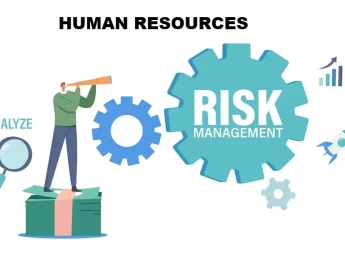The task of strategy analysis is to explore an organisation's future actions and identify the activities to meet those needs and avoid risk areas. When performing strategy analysis, business analysts shape the framework of requirements and examine the effect of certain changes.
Strategy analysis, in addition to identifying necessary changes in a business, will provide the stakeholders with information on how best to implement any changes. Strategy analysis should be considered an ongoing process where the effects of changes are kept under review, and if the strategy needs to be refocused, adjustments can be made.
Simultaneously defining the business need, the business analyst should also work on strategic planning so the stakeholders have better information to make decisions to futureproof the business. As it addresses the changes and future requirements, a strategy analysis must be performed throughout the entire project, and any new information may require adjustment, research, and further feedback.
The business analysis approach depends on the nature of the changes to be made. Sometimes, they may be clearly defined and lead to a projected outcome. Should the changes be less clearly defined, journey mapping sessions should be conducted to identify the pain points within the process, ready to marry up with both quantitative and qualitative feedback. The decisions made need to be mapped out alongside a feasible contingency strategy to ensure the stability of the project going forward.
Upon completion of this course, participants will be able to:
- Understand the principles of strategic analysis.
- Use a Business Motivation Model.
- Match possible solutions and initiatives to the goals that have been set.
- Use enterprise architecture frameworks (EA) to determine how an organisation can achieve its future objectives.
- Identify and quantify business needs.
- Take the initiative from conception to the finished project.
- Identify risks that the changes may bring and create contingency plans.
- Ensure the feasibility of the project.
- Work out a business case for proposed changes.
- Define how it functions and other characteristics- solution scope.
The elements of our course are designed to train business professionals in using analytical tools to develop a feasible strategy that will raise a business to a higher level. It would be most beneficial for:
- Business Analysts
- Business Systems Analysts
- Company Advisors
- Change Managers
- Executive Managers
- Project Leaders
- Experts in Business
- Operations Managers
- Business Owners
This course uses various learning methods to develop an understanding and working knowledge of Strategic Analysis. Its focus is on implementing change to improve the business. Current methods and techniques are explained with focused presentations.
These are followed by practical sessions, during which participants will put theory into practice. Knowledge gained from the presentations will be applied to case studies and exercises, involving participants in group discussions with mentors and constructive feedback.
Day 5 of each course is reserved for a Q&A session, which may occur off-site. For 10-day courses, this also applies to day 10
Section 1: Introducing Strategic Analysis
- Understand the purpose and value of strategic analysis.
- The differences between business strategy and business models.
- Identifying opportunities and problems in a business.
- The process of strategic analysis.
- The importance of the business structure and culture.
Section 2: Analyse the State of the Business
- What are the organisation's capabilities?
- Assess the processes and technologies in the business.
- Review the infrastructure and policies.
- Learn problem-solving techniques.
- Understand the business architecture.
- Assess the state of the business and identify needs.
Section 3: Analysing the impact of changes
- Setting business objectives and goals.
- Developing a solution scope – characteristics and features.
- Identify any limitations.
- Recognise any assumptions in the project.
- Assess added value.
Section 4: Risk Assessment
- How to deal with unknowns arising as the project moves forward.
- What assumptions have been made?
- Are there any constraints or dependencies in the strategy?
- Quantify any risks and assess if any negative impact.
- Risk tolerance- what level is acceptable?
- Plan remedial actions to mitigate risks.
Section 5: Describe Change Strategy
- Understand solution scope.
- Compare the current state with the ideal- Gap analysis.
- Review your organisation to assess its readiness for change.
- Develop a plan to implement the change strategy.
- How to plan and coordinate strategy for transition.
- Determining requirements for the release of the changes.
Upon successful completion of this training course, delegates will be awarded a Holistique Training Certificate of Completion. For those who attend and complete the online training course, a Holistique Training e-Certificate will be provided.
Holistique Training Certificates are accredited by the British Assessment Council (BAC) and The CPD Certification Service (CPD), and are certified under ISO 9001, ISO 21001, and ISO 29993 standards.
CPD credits for this course are granted by our Certificates and will be reflected on the Holistique Training Certificate of Completion. In accordance with the standards of The CPD Certification Service, one CPD credit is awarded per hour of course attendance. A maximum of 50 CPD credits can be claimed for any single course we currently offer.
- Course Code MG2-130
- Course Format Classroom, Online,
- Duration 5 days










